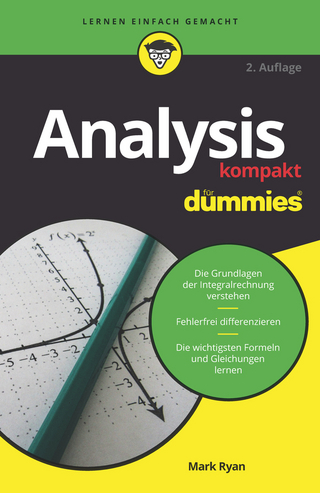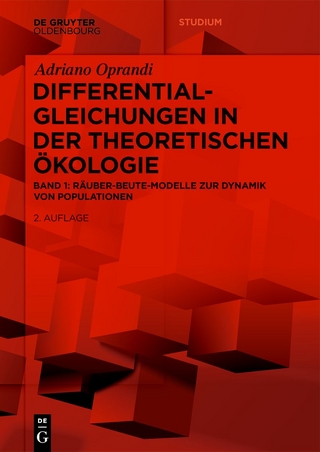
A Short Course in Intermediate Microeconomics with Calculus
Cambridge University Press (Verlag)
978-1-108-43919-0 (ISBN)
This second edition retains the positive features of being clearly written, well organized, and incorporating calculus in the text, while adding expanded coverage on game theory, experimental economics, and behavioural economics. It remains more focused and manageable than similar textbooks, and provides a concise yet comprehensive treatment of the core topics of microeconomics, including theories of the consumer and of the firm, market structure, partial and general equilibrium, and market failures caused by public goods, externalities and asymmetric information. The book includes helpful solved problems in all the substantive chapters, as well as over seventy new mathematical exercises and enhanced versions of the ones in the first edition. The authors make use of the book's full color with sharp and helpful graphs and illustrations. This mathematically rigorous textbook is meant for students at the intermediate level who have already had an introductory course in microeconomics, and a calculus course.
Roberto Serrano is the Harrison S. Kravis University Professor of Economics at Brown University. He received his B.A. in economics from Universidad Complutense de Madrid in 1987, and a Ph.D. in economics from Harvard University in 1992, when he began teaching at Brown University. He is the co-author (with Feldman) of Welfare Economics and Social Choice Theory, 2nd edition (2005). He was elected Fellow of the Game Theory Society in 2017, member of its Council from 2005 to 2011, Fellow of the Econometric Society in 2013, Alfred P. Sloan Foundation Fellow in 1998, and received the Fundacion Banco Herrero Prize in 2004 (awarded to the best Spanish economist under 40). He has delivered a high number of plenary and keynote lectures at economic theory and game theory meetings, and his editorial responsibilities include being an Associate Editor of Games and Economic Behavior and the International Journal of Game Theory, and having been the Editor-in-Chief of Economics Letters. Allan M. Feldman is Professor Emeritus of Economics at Brown University. He received an Sc.B. in mathematics from the University of Chicago in 1965, an M.A. in anthropology from the University of Chicago in 1967, and a Ph.D. in economics from The Johns Hopkins University in 1972. His articles have been published in Review of Economic Studies, Econometrica, American Economic Review, Public Choice, the Journal of Public Economics, the Journal of Economic Theory, and other journals. He is author (with Serrano) of Welfare Economics and Social Choice Theory, 2nd edition (2005). He taught economics at Brown University for 38 years, where he taught intermediate microeconomics course to thousands of students, and developed Brown's calculus-based version of the microeconomics course. He was a winner of the Department's teacher of the year award; he was director of undergraduate studies in the economics department at Brown University for around fifteen years, director of graduate studies for two years, and an economics concentration advisor for around twenty years.
1. Introduction; Part I. Theory of the Consumer: 2. Preferences and utility; 3. The budget constraint and the consumer's optimal choice; 4. Demand functions; 5. Supply functions for labor and savings; 6. Welfare economics 1: the one-person case; 7. Welfare economics 2: the many-person case; Part II. Theory of the Producer: 8. Theory of the firm 1: the single-input model; 9. Theory of the firm 2: the long run, multiple-input model; 10. Theory of the firm 3: the short run, multiple-input model; Part III. Partial Equilibrium: Market Structure: 11. Perfectly competitive markets; 12. Monopoly and monopolistic competition; 13. Duopoly; 14. Game theory; Part IV. General Equilibrium: 15. An exchange economy; 16. A production economy; Part V. Market Failure: 17. Externalities; 18. Public goods; 19. Uncertainty and expected utility; 20. Uncertainty and asymmetric information.
| Erscheinungsdatum | 22.11.2018 |
|---|---|
| Zusatzinfo | Worked examples or Exercises; 129 Line drawings, black and white |
| Verlagsort | Cambridge |
| Sprache | englisch |
| Maße | 204 x 254 mm |
| Gewicht | 1020 g |
| Themenwelt | Mathematik / Informatik ► Mathematik ► Analysis |
| Wirtschaft ► Volkswirtschaftslehre ► Mikroökonomie | |
| Wirtschaft ► Volkswirtschaftslehre ► Ökonometrie | |
| ISBN-10 | 1-108-43919-5 / 1108439195 |
| ISBN-13 | 978-1-108-43919-0 / 9781108439190 |
| Zustand | Neuware |
| Haben Sie eine Frage zum Produkt? |
aus dem Bereich


